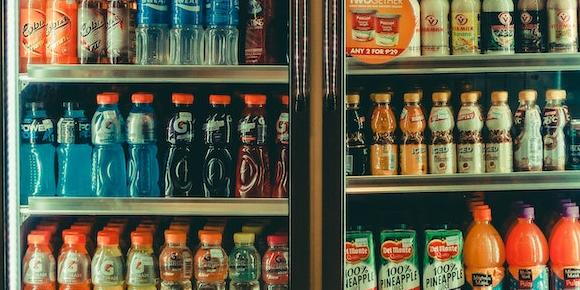What drinks do teenagers prefer?

- posted: Jul. 19, 2011
According to the New York Times, it seems kids crave caffeine even when they don't know it is in the beverage!
Why do kids crave caffeine?
Super-caffeinated energy drinks with names like Red Bull and Monster are increasingly popular among teenagers. But is it savvy marketing or the caffeine that keeps teenagers coming back for more?
New research from the University at Buffalo suggests that adding caffeine to a beverage increases its appeal among young people — even when they don’t know the drink contains caffeine.
To study the effect of caffeine on taste preference, the researchers first set out to create new drink flavors that weren’t familiar to their test subjects. Using a combination of Kool-Aid and flavored carbonated water, the researchers concocted seven new drink flavors, including vanilla-orange and lime-pomegranate. Then they asked 100 young people, ages 12 to 17, to rank their favorites.
The scientists then picked each child’s fourth-ranked drink. Half the students were given the drink with caffeine added, while the other half, acting as a placebo group, were given the version of the drink without caffeine. Over the next four days, the students came back to the lab to taste the drink and rank their preference for it on a scale of 0 to 100. Notably, among the placebo drinkers, there was no change in the students’ flavor ratings over the four-day tasting period. But among those students who were unknowingly drinking a caffeinated version of the drink, the flavor ratings improved each day, rising by 20 to 25 percent over the four days. “Every day, the association with that flavor and the feeling it gave them increased their liking just a little bit,’’ said Jennifer Temple, an author of the study and assistant professor in the department of exercise and nutrition science.
Dr. Temple and colleagues are presenting the study on Friday at the annual meeting of the Society for Study of Ingestive Behavior in Clearwater, Fl.
Dr. Temple said the study suggests that the presence of caffeine in a beverage influences a child’s taste preferences. That said, the study data weren’t conclusive. On the sixth day of testing, the students were given all seven drinks again and asked to rate them. Even though they had tasted their fourth-favorite flavor repeatedly over the past four days, it remained in fourth place. In conducting the research, the researchers told the students they were part of a study testing a variety of drink additives, including flavors, artificial sweeteners, carbonation and caffeine.
Follow-up testing at the study’s end showed that the students were no more likely to guess the beverage had caffeine in it than any of the other additives, showing that neither group was aware if they were drinking a placebo beverage or one with an additive. Dr. Temple said flavor and packaging likely influence a child’s drink choice. But once they have made a choice, over time children appear to develop a stronger preference for drinks with caffeine. “The pairing between the flavors and the way caffeine makes them feel reinforces their propensity for drinking these drinks,’’ she said. “The caffeine is what makes these drinks so reinforcing to children and so liked.’’
REFERENCES: Tara Parker-Pope, The New York Times
Location
Find us on the map - Please click desired location below
Precise Moves Chiropractic San Francisco
3150 18th Street, Suite 334
San Francisco, CA 94110, United States
24 hour Scheduling makes it easy!
(Hours may change due to doctor availability)
Hours in the mission district, San Francisco
8-12pm
Closed
3-6PM
8-12PM
3-8PM
8:00 am - 12:00 pm
Closed
